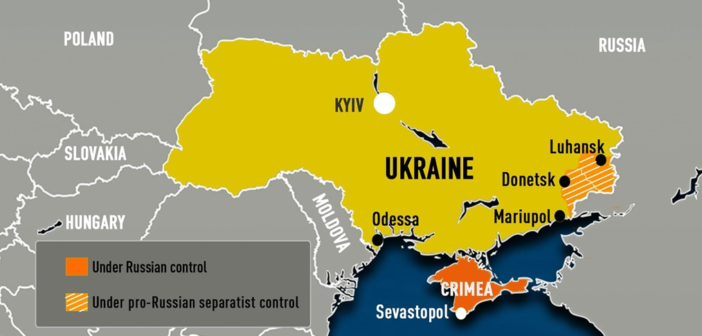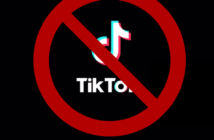By Nicholas Osoro, Contributing Writer
On Feb. 24, Russia’s President Vladimir Putin launched military attacks on Ukraine after announcing that Russia would recognize Donetsk and Luhansk as independent republics. Donetsk and Luhansk are regions in Eastern Ukraine.
In an early-morning address on a Russian state television channel, Russian Today (RT), President Putin described the invasion as a special military operation whose aim was to protect the residents of Donetsk and Luhansk.
Since the Russian military invasion began, the Russian military has destroyed Ukrainian infrastructure and some key cities. So how did we get here?
The current Russia and Ukraine war is part of a large-scale conflict that can be traced back to when Ukraine declared its independence after the collapse of the Soviet Union. But the most recent war is linked to the previous conflict in March 2014 between the two countries.
In March 2014, Russia invaded and annexed Crimea and Sevastopol from Ukraine. Russia justified the move due to the results of a referendum held on March 16, 2014, in which 94 percent of voters opted to leave Ukraine and join Russia. Many countries did not recognize the referendum, and some believed it was fraudulent.
Russia incited an armed separatist movement in eastern Ukraine’s Donbas area to take government structures. With Russian troop buildups reported around the border, Ukrainian forces resisted but feared triggering a much larger conflict with Russian-backed militias and other armed groups in Donbas. Carnegie Endowment for International Peace reported that by early 2022, 14,000 people died because of this conflict. A quarter of them were civilians, and two million Ukrainians had been internally displaced because of the conflict. Parts of two territories, Donetsk and Luhansk, have since declared independence.
In 2015, representatives from Ukraine, Russia, the Organization for Security and Cooperation in Europe (OSCE), and those from Donetsk and Luhansk signed the Minsk agreement (Minsk III). The agreement had several measures whose aim was to lead to a sense of complete peace in Eastern Ukraine. Both Russia and Ukraine have not implemented the agreement signed in 2015 until recently.
Although the effects of the war remain unclear worldwide, the American people need to know that this war will affect them in one way or the other, most important economically. While addressing the nation on Feb. 24, President Biden said, “there will be consequences at home.”
Russia is one of the major producers of natural gas and oil, and the conflict has impacted both oil and natural gas prices in recent weeks. Americans should expect to see a rise in the cost of the two. In addition, Russia and Ukraine are the two largest wheat producers globally and are the most significant food suppliers to Europe.
Although the United States imports minimal oil and wheat products from Russia and Ukraine directly, oil prices are global, which means that a change in price in one part of the world influences how much people will pay for oil and natural gas all around the globe. Also, the shortage of commodities resulting from the conflict could indirectly drive-up prices for finished products and raw materials.
Dr. Daniel Tschopp, an associate professor of business and economics at Saint Leo, expressed that global unrest could also frighten American consumers prompting them to cut back on economic activities and spending.
Tschopp further adds that with the Federal Reserve planning to increase interest rates this March, it could become challenging to decide how fast and aggressively they can increase the borrowing costs to tackle the rising inflation.
With sanctions from the United States and its allies crippling the Russian economy, the Department of Homeland Security warned Americans to look for threats on cyberattacks. Russia could respond to the American sanctions with cyberattacks as a retaliation, crimpling many essential aspects of the economy that rely on digital infrastructure to run their day-to-day operations.
The United States has already sent several thousand troops to Europe. The Department of Defense and press statements from the White House have constantly stated that the United States will not take part in the conflict directly but will defend every territory of The North Atlantic Treaty Organization (NATO) allies if Russia attacks them.
The United States’ role during the conflict will determine its position in global matters in the future, and the war is about more than just Russia and Ukraine. It is about the world.





